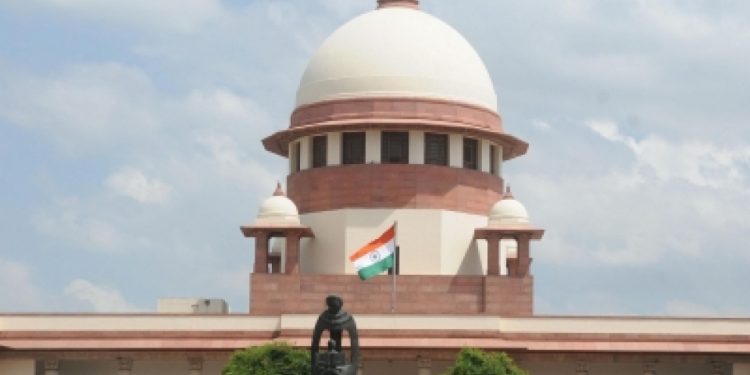New Delhi: The outgoing 2021 might be quite a busy year for Odisha in the Supreme Court with a number of cases being heard by the apex court but a couple of long-pending matters remained sub-judice.
Odisha has approached the apex court on numerous issues but inter-state disputes turned out to be the major causes of worry for the state.
In 2007, Odisha had filed an original suit in SC against Andhra Pradesh (AP) challenging the multi-purpose Polavaram project, being constructed by the latter on River Godavari. Odisha alleged that the project would lead to the submergence of huge tracts of land in Malkangiri district and make scores of tribals homeless and landless. This case is still pending in the SC even after several rounds of hearings. The plea was last heard in February 2020.
In 2021, Odisha also moved the SC challenging the National Green Tribunal (NGT) order on Polavaram but that matter was also heard only once. The hearing ended with a simple adjournment as one of the Justices L Nageswara Rao recused himself from hearing the case. During the hearing of the petition against NGT order, Odisha had pleaded for early listing of the original suit. An advocate appearing for an NGO had also written to the SC for early listing of Polavaram case but in vain.
Another crucial case which could not make any headway in 2021 was the Srimandir case. The SC had in its interim order in 2019 directed the state government to chalk out strategy for hassle-free darshan of devotees in the temple. The SC had last heard the matter in January 2020 and adjourned it for four weeks. The petition was filed in 2018 alleging harassment of devotees at the 12th century shrine. The petitioner, Nalini Padhi, had sought proper mechanism for hassle-free darshan of devotees.
Apart from these two cases, there were some days which went in the favour of Odisha as the apex court took up Vamsadhara river dispute for hearing this year. As many as three petitions of Odisha against AP have been pending in SC over Vamsadhara river dispute. The third petition was filed this year against Vamsadhara tribunal order passed in June 2021. In a major breakthrough, the SC clubbed all three petitions and commenced the hearing of the matter. The apex court heard the matter December 8 last and posted it for final disposal in January 2022.
Another inter-state dispute that knocked the legal corridor was in the form of a contempt plea against AP over Kotia group villages. Odisha alleged that the neighbouring state has violated the apex court’s judgement of 2006 and held panchayat elections in Kotia group of villages this year. The SC after holding several hearings on the matter directed both the states to look for a political solution to resolve the border dispute.
In 2021, the SC had expressed exasperation over the cut and paste order of the Orissa High Court. The apex court had observed that the cutting and pasting of tribunal orders may only add the volumes in judgement but will not address the core issues.
This year, a plenty of high profile cases from Odisha also reached the legal corridors in Delhi. Odisha Lokayukta filed a petition in the SC challenging Orissa High Court order in Pradeep Panigrahi corruption case. The case is sub-judice. The SC had also refused to entertain a writ petition filed by Panigrahi seeking registration of a criminal case against Odisha Lokyukta on charges of forgery.
The Pari murder case of Nayagarh also made its way to the SC with the parents of the 5-year old girl seeking a probe by central agency. However, the apex court restored the petition of Pari’s father in the High Court and granted liberty to parents to amend the writ petition in the High Court. The SC had also set aside an order of the High Court wherein the HC had directed Pari’s father to approach district magistrate for his grievances.
Another murder case that reached the apex court was of Aditya Dash. However, the apex court refused to interfere in Dash murder case citing that a petition was already pending with the High Court.
In a major relief to private un-aided schools in Odisha, the SC had exempted them from the binding effect of the state government’s notification directing waiver of fees for the pandemic period.
Kuldeep Singh, OP







































